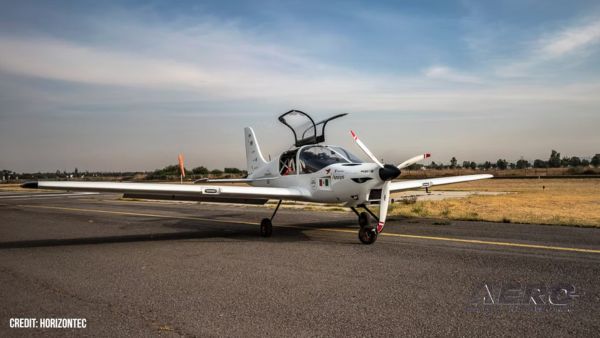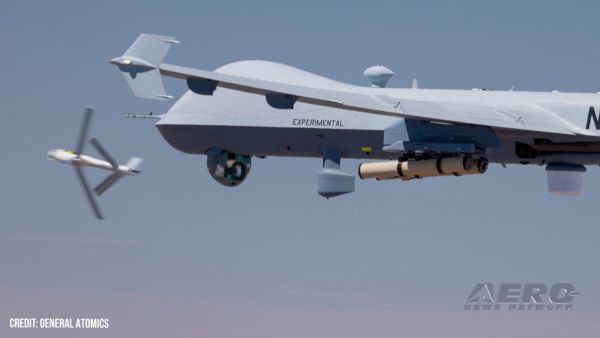Adds Exemptions For Some Pilots, Flight Instructors
The FAA posted a final rule and request for comments in the Federal Register Monday that will exempt some pilots from having to complete a biennial flight review. This rule permits an airman who passes a practical test for issuance of a flight instructor certificate, a practical test for the addition of a rating to a flight instructor certificate, a practical test for renewal of a flight instructor certificate, or a practical test for the reinstatement of a flight instructor certificate to meet the 24-calendar month flight review requirements.

This rule also clarifies that the generally applicable recent flight experience requirements do not apply to a pilot in command who is employed by a commuter or on-demand operator if the pilot in command is in compliance with the specific pilot in command qualifications and recent experience requirements for that commuter or on-demand operator.
The purpose of the flight review is to provide for a regular assessment of pilot skills and aeronautical knowledge. When the requirement was first introduced, the FAA stated that the flight review would assure that every pilot would have a qualified individual comment on his or her competency at least once every two years. The flight review also offers pilots the opportunity to design a personal currency and proficiency program in consultation with an authorized flight instructor. A flight review may have certain standard features, such as review of specific regulations and procedures; however, both the flight review and any follow-up plan for training and proficiency may be tailored to each pilot’s skill, experience, aircraft, and personal flying goals. Section 61.56 sets forth certain exceptions to the requirement for a pilot to accomplish a flight review.
Among these exceptions, a person who has, within the prescribed 24-month period, "passed a pilot proficiency check conducted by an FAA examiner, an approved pilot check airman, or a U.S. Armed Force, for a pilot certificate, rating, or operating privilege," need not accomplish the required flight review required by the FARs.
In a recent legal interpretation, the FAA concluded that a flight instructor practical test is not included in the listed exceptions because it is not a "pilot proficiency check." In this new rule, the FAA says it finds that good cause exists to amend § 61.56(d) to include successful completion of flight instructor practical tests among the exceptions to the flight review requirement. Applicants for an FAA flight instructor certificate are required to have the comprehensive knowledge and skills necessary to provide instruction to airmen seeking pilot certificates and ratings. Part 61 specifies the areas of operation in which knowledge and skill must be demonstrated by the applicant before the issuance of an FAA flight instructor certificate with the associated category and class ratings. All practical tests administered must meet the knowledge and skill standard prescribed by the corresponding Flight Instructor Practical Test Standards Book published by the FAA.
Lastly, the FAA says that it recognized that it is appropriate to amend the language in § 61.57(e) to make clear that the recent flight experience requirements of that section do not apply to a pilot in command who is employed by the holder of an operating certificate that is conducting operations under part 121 or part 135 if the pilot in command is also in compliance with § 121.435 or § 121.436, as applicable, and § 121.439, or §§ 135.243 and 135.247, as appropriate. In making this change, the FAA says it is acting consistently with the original intent of the regulation— specifically, providing relief from redundant recency requirements.
The rule is open for comments until October 16, 2013.
 NTSB Final Report: Evektor-Aerotechnik A S Harmony LSA
NTSB Final Report: Evektor-Aerotechnik A S Harmony LSA ANN's Daily Aero-Term (09.15.25): Decision Altitude (DA)
ANN's Daily Aero-Term (09.15.25): Decision Altitude (DA) Aero-News: Quote of the Day (09.15.25)
Aero-News: Quote of the Day (09.15.25) Airborne 09.12.25: Bristell Cert, Jetson ONE Delivery, GAMA Sales Report
Airborne 09.12.25: Bristell Cert, Jetson ONE Delivery, GAMA Sales Report Airborne 09.10.25: 1000 Hr B29 Pilot, Airplane Pile-Up, Haitian Restrictions
Airborne 09.10.25: 1000 Hr B29 Pilot, Airplane Pile-Up, Haitian Restrictions



